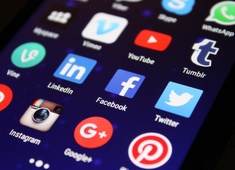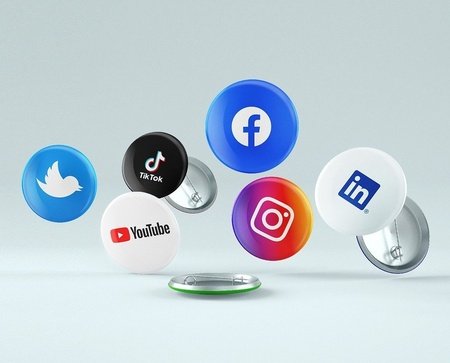
Media Literacy
First published: Tuesday July 11th, 2023
Report this blog
Introduction
Merriam-Webster Dictionary defines "social media" as: forms of electronic communication (such as websites for social networking and microblogging) through which users create online communities to share information, ideas, personal messages, and other content (such as videos). Assuming that as our definition, we can safely say that JetPunk is a social media platform. Functions such as comments and blogs allow users to directly express their interests and views, while abilities including liking comments/blogs and nominating quizzes do this indirectly. A massive amount of information is shared throughout JetPunk using these features, making it impossible to say that this site is not social media.

The sheer extent of user-to-user interaction of JetPunk, while not on the scale as platforms like Instagram or Facebook, is definitely very large. And with such interaction comes the inevitable spread of misinformation, whether intentionally or not.
Here's an example: I made a blog a while ago about China and how it might be remembered in history. At one point, I made the erroneous statement, "China does not have Social Security." The user cuotak pointed out this mistake, explaining that, as a socialist state, China inherently has systems that function similarly to Social Security. After spending about an hour further researching this topic, I gathered enough information to fix up the blog.
Now, this is what should happen. People will inevitably make mistakes. Other people will point out those mistakes. The people who made the mistakes will correct their mistakes.
However, it happens all too often that an author fails to correct their mistake, either unintentionally or on purpose. Generally, this occurs in two ways: people don't notice the mistake, or the author ignores attempts to correct the mistake.
Now, if we had a world in which every author of every piece of information ever created were responsible enough to fix up their works whenever an error were pointed out, that would be great! But even with that (which, obviously, isn't realistic in the first place), it would still necessitate someone pointing out the mistake, which isn't guaranteed, while in the meantime, there is the potential for people who read the false information to assume it is true. That means that, even if the author were to fix up their writing, there could still be people out there who would never know that what they think is true is actually very wrong.
What is Media Literacy?
Media literacy is, according to Oxford Languages, "the ability to critically analyze stories presented in the mass media and to determine their accuracy or credibility." When someone is media literate, they can clearly identify whether what they are looking at is truthful or not, as well as implicit biases within that piece of media.
Much like literacy, media literacy is a skill; one that improves with constant use. The more you closely look at whatever you read, the better you'll get at distinguishing fact from fiction. Though the practice may be difficult and/or unnatural at first, it can quickly become second nature with consistent application.
You can think of media literacy as somewhat of a sequel to literacy itself. Literacy is when you read and understand what you are reading, and then media literacy is when you think about what you read and ask yourself, "Is this true or not?"
Media literacy isn't even limited to the Internet, though that will be what I'm going to be primarily focusing on in this blog. You can apply it to physical copies of information, like newspapers, and use similar techniques to what you would use online on those pieces of media, too.
Why Learn Media Literacy?
The rapid expansion of the Internet and the digital landscape has opened up a library of information unprecedented in scale to billions of people around the world. This does come with great benefits, as the Internet makes it infinitely easier for anyone to learn and spread information, increasing the efficiency of our society many times over.
It does, though, come with downsides.
Think of our global transportation system. In an airplane, I can get from Hollywood to the Sydney Opera House in less than a day. I am crossing the largest ocean in the world in under 16 hours, a trip which, without flying, would have taken weeks. The time to do anything that requires traveling has shrunken dramatically, hugely increasing our efficiency and time management.
But then, think of what happened in the COVID-19 pandemic. The same transportation that allowed us unprecedented ease of traveling allowed the virus to spread at a pace unseen in human history. In just three years, nearly 700 million people were confirmed to have contracted the virus, with 7 million of those patients dying. And these are just documented numbers, with undocumented cases and deaths likely numbering in the hundreds of millions and millions, respectively. The same system that allow us to move rapidly also gives other things the ability to move just as quickly.
And that's what the dangers of the Internet are. While it lets us spread information and knowledge nearly instantaneously, it allows opens up the opportunity for misinformation and lies to be spread in the same manner.
That's why media literacy is so important. Because of the Internet, we are faced with more false information than every before, and we need to develop the skills needed to separate fact and fiction, or the huge library of knowledge that the Internet opened up for us will only serve to overwhelm our minds and leave us unable to determine the truth.
Methods of Media Literacy
So how does media literacy actually work? There are numerous sources that offer different methods, but there are two basic ways to analyze the credibility of a source.
First, look for any indicators of bias and reliability. This can be in the website that your source is in, the content of the source, the language or depiction of topics displayed in the source, or the author of the source. For example, an article about the economy by an author who is a professor in economics at a distinguished university would be a far more reliable source than an article of the same topic by an amateur journalist with a high school diploma. In a similar way, an article about the handling of the economy by the Biden administration by a professional, neutral media outlet such as Reuters would be more credible than a podcast of the same topic on a far left or far right radio show.
Sometimes, this requires conducting some online sleuthing outside of the website you were looking at. Maybe you might have to do a quick search about the author or the organization that published the piece of information you're looking at. Try to develop the habit of doing this if you're ever uncertain of the biases or credibility of the author(s) of a piece of media you are consuming. It will literally take a few seconds and can help determine whether what you're looking at is professional and reliable, or perhaps can benefit from a few fact-checking runs.
A very helpful tool for this is a website called Ad Fontes Media, which provides an interactive media bias chart. This allows you to see the bias of dozens of different media outlets, with ratings given by balancing the opinions of analysts from the left, center, and right about the bias rating of each specific media source, ensuring that each rating is as reliable as possible.
The second way of analyzing the credibility of the source is by finding other sources of the same topic, then comparing them. By doing this, you can figure out what some sources might be saying differently from others, and then do some more investigating to figure out which is true. This method is especially useful if the media you're consuming is about a topic that is widely covered by other outlets, giving you a vast array of perspectives and opinions that can better inform you about the topic.
A website that is very useful in this is a news outlet called Ground News. This news website allows the reader to see how each topic is covered by left-leaning, right-leaning, and centrist sources, as well as how much of the coverage in each topic is conducted by each.
Conclusion
So, hopefully this blog has been able to prove the benefits of learning media literacy, as well as how to start using the skill on your own. While this may seem like such a simple thing to do, it's astonishing how rare it is to see people use methods like those that were discussed above, as well as how misinformation is often believed as easily as honest information. I hope this blog has been helpful in introducing you to media literacy, as well as given you the steps to begin effectively using it to your advantage.

Just do a quick Google search and you'll easily discover multiple sources that disprove the blatant misinformation.
Instruction of good logical thinking is equally important in avoiding misinformation, though they really go hand-in-hand.
I know I'm pretty late but welcome back to JetPunk! :)
Lately, I've been rather inactive here as well. Times have changed...
Thanks for the welcome! :D Yes, I've been rather busy doing stuff outside of JetPunk, but I'm hoping that I can return and hopefully contribute meaningfully to the community I enjoyed being a part of a few years ago. In the meantime, I'm looking forward to content other users make!